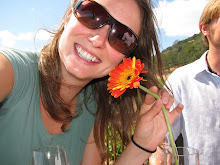Chapter 1 tells the story of Gertie Mai Muise, a Mi’kmaq women from western Newfoundland. She left her community to find gain an education and discovered that she had lost a part of herself by leaving. This story tells of her returning to her home to help her people both by building support for themselves from within the community and by teaching them to recognize offenses against the community from outsiders. Some of the themes of this chapter I found were quite similar to the themes present in the Zapatista movement. These are women working together to rebuild and protect the communities from the inside; working to get better health care for women and children, creating an environment where women can be safe in their own homes with support for the community for those who aren’t, and also the restrictions of an outside government on the ecological systems which support this communities. In Newfoundland this community is dependent on the salmon, but the government has placed restrictions on how many fish can be caught for “environmental protection” reasons, which in the long run just benefit the commercial industry who over fished them in the first place causing the concern. I was surprised to learn that the government has just decided that a certain race of people are ‘extinct’ when they are still living among them.
Anderson, Kim, and Bonita Lawrence, eds. Strong Women Stories : Native Vision and Activism. New York: Sumach P, 2004. 11-36.
Subscribe to:
Post Comments (Atom)

1 comment:
I think talking about Native people losing part of themselves when they leave their homes to pursue an education or other work is an important thing to talk about. I see education as a form of restoration, resilience, and adaptation to colonization. Yet Indigenous people are still being colonized through the education setting because their cultural, spiritual, etc. needs are not met while in school. This needs to be changed, how can we change this? Here's a journal article on "understanding and transforming the historically disempowering experiences" of Native people
http://eric.ed.gov/ERICWebPortal/custom/portlets/recordDetails/detailmini.jsp?_nfpb=true&_&ERICExtSearch_SearchValue_0=ED360870&ERICExtSearch_SearchType_0=no&accno=ED360870
Post a Comment